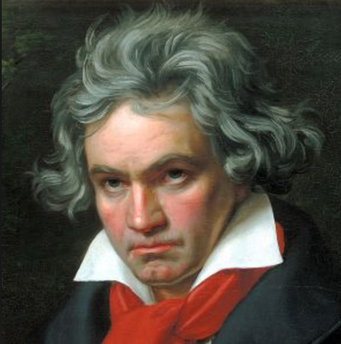Why is Classical Music Dying?
When I was young, I can remember actually expressing distaste, even mockery, of this the classical genre. It was almost even taboo to like anything that wasn't driven by lyrics, guitars, and a drum set. So why the divide? Why don't average (non-musicians) listeners consistently fill their Spotify Stations or iPods with Beethoven, Bach, or Wagner? And why do many only pull out Mozart to study? Here's what seems to have happened:
Back in music history class in college, we listened to lots and lots of musical examples as we wound our way through the years. I can remember listening to examples of 20th century piano music and all my non-music friends literally thought a child was banging on a piano. Now, in no way do I mean to devalue the composers by comparing great works of art to a child banging on a piano, but to the untrained listener, it doesn't make sense. Over time, as musicians performed these works in concert halls, I'm sure the general public was very confused and, honestly, just stopped going to concerts. Personally, even being a consummate student of music, I find it difficult to sit through a concert of atonal music. Now, as concert halls were being filled with these sometimes harsh and unpredictable sounds, pop culture music was on the rise.
The Rise of "Pop Culture" Music (Pop Culture Music referring to the most popular music of the time period)
Just as classical music reached its height of chromaticism (and other experimental things, see John Cage), we start to see pop culture music on the rise. For example, it's doubtful that many people know who John Cage was, but I bet most people knew Glenn Miller. Jazz being the pop music of the 1930s and 1940s.. and then Jazz morphed in the the popular forms of the Blues.. and then the Blues morphed into Rock and Roll.. and then combinations of various forms blended to where we have the Pop music of each decade like 80s Music, or 90s Music.. (please realize I know that that was a VERY abridged version of the progression of music) Which brings me to today in 2015, where we've mashed Classical Music into a category next to say, Alternative. Or better yet, Dance! The sad part is that by doing that, we've put Philip Glass in the same category as Gustav Mahler. The two composers have about as much in common as Eminem and Taylor Swift. And now I'm brought to the absolute purpose to this post, and what I feel is my increasing charge as a composer and educator: bring people back to the concert hall. Strategies for Bringing Classical Music Back 1) Music Teachers - Music teachers are training new musicians all the time. I encourage my students to go to performances and to see and hear professional musicians. As band, choir, and orchestra students get into music, they'll naturally migrate to performances simply because they have an understanding of what classical music is from their own training. 2) Musicians - I am so encouraged by seeing classical musicians "breaking the mold," not because classically oriented music should be inherently changed, but musicians creatively reaching new audiences. Here's a couple of examples:
These two examples are quite different, but would certainly evoke a curiosity in anybody who decided to click play. The first video has almost 9 million views, surely some of those views are from non-musicians who maybe now have somewhat of an appreciation for Beethoven.
3) Basic Understanding of Music - Here's what would be fantastic--if everyone (or most people) had a basic understanding of music. What if everybody knew how to construct a major scale? What if everybody knew the difference between a trumpet and a trombone (it's frustrating how many people don't..)? What if everybody could tell the difference between a violin and viola just by looking at it? Or based on how the orchestra was seated? These questions take me back to my childhood. Once I had a basic understanding of the mechanics of music, classical music was no longer beyond my reach... and now it's what I do for a profession. My hope is that myself and the rest of us who've dedicated much of our lives to music (specifically classically oriented music) can bring audiences back into concert halls and venues. I hope that more people will give Beethoven or Bach or Mendelssohn or Schubert a chance! In this generation of mindless Tweeting and Facebook posts, I hope that we can get back to sitting for an hour or two and listen to some timeless works of art. Longest post yet. By far the most important.
1 Comment
|
AuthorThe musings of a composer that also band directs!! ... or maybe it's the other way around.. Archives
May 2021
Categories |
John McAllisterComposer, Educator
- Start Here
-
Music
- Concert Band - Marches
- Concert Band - B
- Concert Band - VE
- Concert Band - E
- Concert Band - ME
- Concert Band - M
- Concert Band - A
- Adaptable Duets
- Adaptable Trios >
- Adaptable Quartets
- Brass Quintet
- Adaptable Quintets >
- Etudes and Exercises
- Marching Band >
- Video Games
- Jazz
- Christmas/Holiday
- 2023 Christmas Music
- Strings
-
Instruments
-
Free Resources
- Bonus Content
- Contact
Follow on Youtube, Instagram, or Facebook
|
Tip Jar? Click below. More coffee. More free stuff.
|


 RSS Feed
RSS Feed
